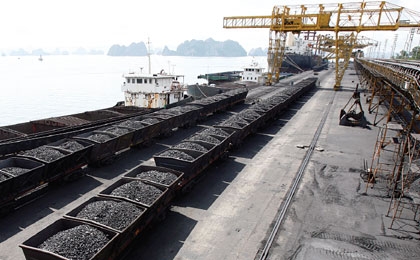SOEs split on appraisal index
 |
| illustration photo |
Accordingly, state-owned enterprises (SOEs) will be assessed based on revenue and relevant incomes, profit margins and return on equity (ROE) rate, overdue debt and payment ability, implementation of products and services for public interests and state law obedience in diverse areas such as tax and premium contributions.
SOEs’ management board will be assessed by relevant state management agencies based on these criteria and suitable reward and punishment schemes will be introduced.
A management board appraised as excellently performing its duties will enjoy a reward of VND500 million ($24,000) per year if a SOE wins a grade A rating. Similarly, a management is appraised as fulfilling its duties and enjoy half the reward (VND250 million per year) if the SOE wins grade B rating. If the SOE gets grade C rating, its management will loose all the cash reward.
Besides, according to the Ministry of Finance (MoF) business and its management rating will be handled publicly, and annually relevant management authorities and provincial-level people’s committees are obliged to make public appraisal results and rating of SOEs under their management. Periodically, the MoF will announce the business efficiency, capital and asset management state of SOEs.
Vinacomin chief accountant Tran Xuan Thuy assumed the criteria on profit margins and ROE rate (criterion 2) should not be too rigid requiring a year-on-year growth from businesses and additional exclusion factors such as natural calamities and epidemics.
Electricity of Vietnam’s (EVN) financial department deputy head Nguyen Xuan Nam did not agree with applying criterion 2 similarly towards all state-owned corporations and groups.
“The power sector is a state monopolised sector, so that the electricity price and relevant mechanisms are all set by the state. Therefore, it will be unreasonable to apply criterion 2 towards EVN and some other state monopolised sectors,” Nam said.
Nam also required the MoF to be impartial when it came to assessing the debt criterion (criterion 3).
“Businesses with overdue debts incur scores reduction, while for essential items such as petroleum and electricity in some certain periods businesses have to sell products under the production cost following state policies to curb inflation. Their losses will later be covered by the state but the payment often comes late and businesses then out of cash to pay due debts. Reducing their scores in such cases is unreasonable,” Nam said.
Vietnam Tobacco Corporation chief accountant Nguyen Tan Tao said the reward of VND500 million per year (equal to around VND30 million or $1,450 per person per year) was low and did not correspond with their contributions.
What the stars mean:
★ Poor ★ ★ Promising ★★★ Good ★★★★ Very good ★★★★★ Exceptional
 Tag:
Tag:
Related Contents
Latest News
More News
- The generics industry: unlocking new growth drivers (February 04, 2026 | 17:39)
- Vietnam ready to increase purchases of US goods (February 04, 2026 | 15:55)
- Steel industry faces challenges in 2026 (February 03, 2026 | 17:20)
- State corporations poised to drive 2026 growth (February 03, 2026 | 13:58)
- Why high-tech talent will define Vietnam’s growth (February 02, 2026 | 10:47)
- FMCG resilience amid varying storms (February 02, 2026 | 10:00)
- Customs reforms strengthen business confidence, support trade growth (February 01, 2026 | 08:20)
- Vietnam and US to launch sixth trade negotiation round (January 30, 2026 | 15:19)
- Digital publishing emerges as key growth driver in Vietnam (January 30, 2026 | 10:59)
- EVN signs key contract for Tri An hydropower expansion (January 30, 2026 | 10:57)






















 Mobile Version
Mobile Version